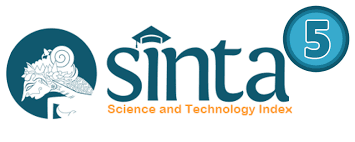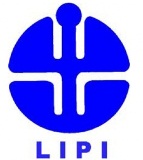MENGURANGI KEJADIAN DISMENORE DENGAN MENJAGA KENORMALAN KADAR HEMOGLOBIN
DOI:
https://doi.org/10.30606/jmn.v12i1A.2743Abstract
The dysmenore consists of complex symptoms of lower stomach cramps that spread to the back or legs and are usually accompanied by gastrointestinal symptoms and neorological symptoms such as common weakness. Approximately 50% of menstruated women experience dysmenorrhea, and 10% have severe symptoms that require bed rest. Women with dysmenore will have an impact on women's health and productivity. Women with dysmenore have more holiday days and have less performance in school. In addition to that, it's an early symptom of a female reproductive disorder. Many factors cause of the dysmenorrhea include psychological factors, endocrine factor, sevikalys canalical clusion factor, allergic factor, constitutional factors such as anemia and disease bear. Anemia is a state of decreased amount of erythrocytes or hemoglobin from normal value in the blood so it cannot fulfill its function to carry enough O2 to the peripheral tissue so that the delivery of o2 to the tissue decreases.The purpose of this study is to find out the relationship of hemoglobin levels with dismenore of the students Pasir Pengaraian university, so that by maintaining the normality of hemoglobin levels can lower the occurrence of dismenore. Method of research is analytic quantitative with a cross sectional approach. Sample in this study is the entire first year students of health science faculty Pasir Pengaraian university which amount 60 respondens. Data analysis is univitarian and bivariatically used the chi-square test. Studies obtained a value of p = 0.001 with value OR = 2,900 means there's a significant connection between hemoglobin levels and the dysmenore incident of students at Pasir Pengaraian University. The conclusion of the dysmenore event can be reduced by keeping hemoglobin at normal levels. Suggest that a student maintains a nutrition intake to ensure that hb is within normal limits.
Downloads
References
Anwar, ( 2014). Ilmu Kandungan. Jakarta: Bina Pustaka Sarwono Prawirohardjo
Dewi, Syntya. (2012). Biologi Reproduksi. Yogyakarta : Pustaka Rihama
Hidayat, A aziz alimul. (2010). Metode Penelitian Kebidanan Tekhnik Analisi Data. Jakarta : Salemba Medika.
Ishardimanti, (2009). Hubungan Tingkat Anemia Dengan Tingkat Dismenore Pada Santriwati Umur 17-20 tahun di Pondok Pesantren Ngrukem Bantul Yogyakarta. STIKES Aisyiyah Yogyakarta : Karya Tulis ilmiah
Judha, Muhamad & Sudarti, Fauziah. (2012). Teori Pengukuran Nyeri & Nyeri Persalinan. Yogyakarta: Nuha Medika
Manuaba (2011). Kapita Selekta Penatalaksanaan Rutin Obstetri Ginekologi dan KB. Jakarta: EGC
Maningsih, R. (2011). Efektifitas Paket Pereda Terhadap Intensitas Nyeri Pada Remaja dengan Dismenore di SMAN Kecamatan Curup [tesis]. Depok: Universitas Indonesia
Margareth, Zh. (2013). Kehamilan, persalinan, dan nifas.Yogyakarta : Nuha Medika
Nugroho, T & Bobby Indra Utama. (2014). Masalah Kesehatan Reproduksi Wanita. Yogyakarta: Nuha Medika
Proverawati, A & Miisaroh, S. (2009). Menarch. Muha Medika: Yogyakarta
Potter, (2005). Fundamental Keperawatan Konsep Proses Dan Praktik Edisi 4. Jakarta : ECG
Prawirohardjo, Sarwono, 2005. Ilmu Kandungan. Yayasan Bina Pustaka Sarwono Prawirohardjo, FKUI : Jakarta
Rahmawati, yuni. (2017). Hubungan Kadar Hemoglobin Dengan Tingkat Disminore pada Remaja putri di Prodi DIII Kebidanan Universitas Pasir Pengaraian. Diakses pada bulan februari 2017.
Saraswati, sylvia. (2010). 52 Penyakit Perempuan. Jogjakarta : Katahati, 2010
Saryono, Anggraeni. (2013). Metode penelitian kualitatif dan kuantitatif dalam bidang kesehatan. Yogyakarta : Nuha Medika, 2013.
Supariasa, nyoman ( 2014). Penilaian Status Gizi. Jakarta : EGC
Wahyuninsih, endang (2014). Hubungan Kadar Hemoglobin Dengan Kejadian Dismenore Pada Siswi Kelas XI SMA Negeri Wonosari Klaten. Diakses pada bulan februari 1014
Vitiasaridessy (2014), Kadar Hemoglobin Dengan Kejadian Dismenore Pada Remaja Puteri. Jurnal Edu Health, Vol 4, No 2, September 2014.
Downloads
Published
How to Cite
Issue
Section
License
Copyright (c) 2024 Nana Aldriana, Rahmi Fitria, Eka Yuli Handayani, Rahmawati

This work is licensed under a Creative Commons Attribution 4.0 International License.










